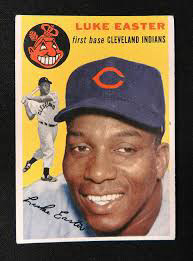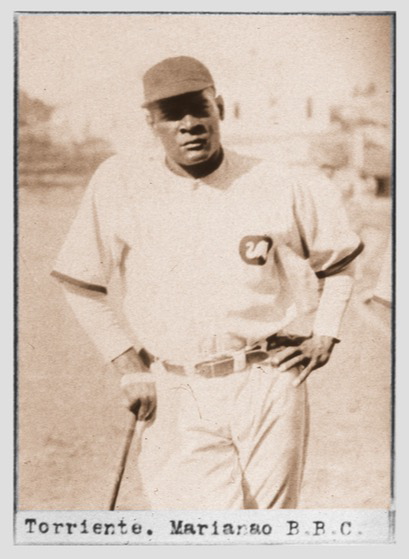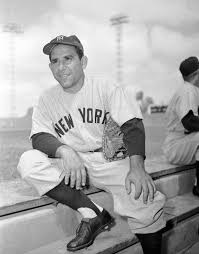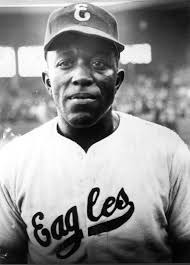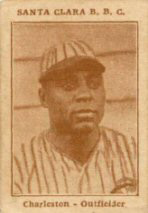One of the baseball heroes of my childhood, Luscious “Luke” Easter. He became a Negro League Star around age 30, enjoyed his greatest success with the then-Cleveland Indians in his mid-30’s, and was over 40 when I saw him slugging homers for the Triple-A Buffalo Bisons. Despite the injuries to his legs which shortened his major-league career, Luke Easter became the International League MVP in 1957, and continued playing for the Bisons and then the Rochester Red Wings, as late as 1963, age 48.
@ldkirk
- 4 Followers
- 16 Following
- 13 Posts
Cristobal Torriente was a Cuban outfielder who played for a number of US Negro League teams for two decades, going back as far as 1912. There were a few Hispanic players in the Majors before 1947, but they were light-skinned and often born in the US. Al Lopez and Lefty Gomez come to mind. Very obviously, another example of the double standards of the time. #baseballhistory #negroleagues
https://youtu.be/_SRbfMkeASk?si=N91K2CIjKVtADYlX The Treniers were a once highly popular R&B performing group, bringing their energetic live show to a rabid following for several decades, even showing up in a movie or two as well. They were not anywhere near as successful as recording artists. But this novelty record, with a cameo appearance by Willie Mays, now serves as a tribute to one of true GOAT’s of baseball. #WillieMays #baseball #baseballsong
R.I.P. WILLIE - 1954 The Treniers with Willie Mays - Say Hey (The Willie Mays Song)
Rickwood Field, home of the Birmingham Barons, one of the storied teams of the Negro Leagues, is back in the spotlight, with a major league game to be nationally telecast from the iconic 114-year-old stadium on Thursday, 6/20. Here is some background material from the Rickwood website:
The Legend of Rickwood Field (and the players who helped create it) Rickwood Field was the passionate pursuit of a young Birmingham, Alabama industrialist, A. H… https://search.app/nXVqAyB5uKeLeue49
The Legend of Rickwood Field (and the players who helped create it) Rickwood Field was the passionate pursuit of a young Birmingham, Alabama industrialist, A. H… https://search.app/nXVqAyB5uKeLeue49
History of Rickwood Field - Rickwood Field
The Legend of Rickwood Field (and the players who helped create it) Rickwood Field was the passionate pursuit of a young Birmingham, Alabama industrialist, A. H. “Rick” Woodward. While still in his 20s, Woodward bought a controlling interest in the city’s professional baseball team, the Coal Barons. His city was riding high, earning the nickname […]
https://search.app/cUAKW9FnLtrwL6tU6 One of the most significant and influential figures in the development of the Negro Leagues was Andrew “Rube” Foster. A fine pitcher, important manager, but most vital of all was tireless role as organizer, administrator, and executive. This well-researched article by Tim Odzer makes it very clear why Rube Foster is known as “The Father of Black Baseball”.
https://search.app/HvGVcGaiheHDKePt7
Women have recently begun to make inroads into organized baseball as coaches, umpires, execs. But in that regard, the Negro Leagues were far ahead, already having three women players on men’s teams in the early 1950’s. Alas, they weren’t fully accepted at the time. Even so, they are not forgotten. #baseball #negroleagues #womeninsports
Women have recently begun to make inroads into organized baseball as coaches, umpires, execs. But in that regard, the Negro Leagues were far ahead, already having three women players on men’s teams in the early 1950’s. Alas, they weren’t fully accepted at the time. Even so, they are not forgotten. #baseball #negroleagues #womeninsports
https://www.mlb.com/news/willie-mays-negro-leagues-stats-adjustment?partnerID=web_article-share
As one might guess, adding Negro League stats to the official Major League record books does not come without pitfalls. The recent news that Willie Mays is now credited with ten more hits than he had previously been also revealed that he has NOT been credited with additional home runs he may have made, due to the lack of box-score documentation. More research needs to be done, and certainly will be.
As one might guess, adding Negro League stats to the official Major League record books does not come without pitfalls. The recent news that Willie Mays is now credited with ten more hits than he had previously been also revealed that he has NOT been credited with additional home runs he may have made, due to the lack of box-score documentation. More research needs to be done, and certainly will be.
At least two members of the National Baseball Hall of Fame participated in the D-Day Invasion 80 years ago today. Yogi Berra should be familiar to all baseball fans, but perhaps not so Leon Day. Day was a top pitcher in the Negro League during the 1930’s and 40’s, who also spent a few seasons in the post-war Mexican League. #D-Day #baseball #halloffame
It so happens Oscar Charleston did indeed have a few baseball cards issued in his heyday. But, as with Martin Dihigo, they do not represent him as a participant in the Negro League in the US, but with his Cuban team of 1923-24. Here is one example. #baseball #Negroleagues #Cubanbaseball
One of the major beneficiaries of the decision to count Negro League stats in the official records of Major League Baseball is player and manager Oscar Charleston. Here’s an article which will tell you much more.
#NegroLeague #baseball
Jeremy Beer is a longtime member of the Society for American Baseball Research. But even he was surprised when, 15 years ago, he stumbled across a name in a Top https://search.app/Yk3ATF5LPCx6eKGv9
#NegroLeague #baseball
Jeremy Beer is a longtime member of the Society for American Baseball Research. But even he was surprised when, 15 years ago, he stumbled across a name in a Top https://search.app/Yk3ATF5LPCx6eKGv9
